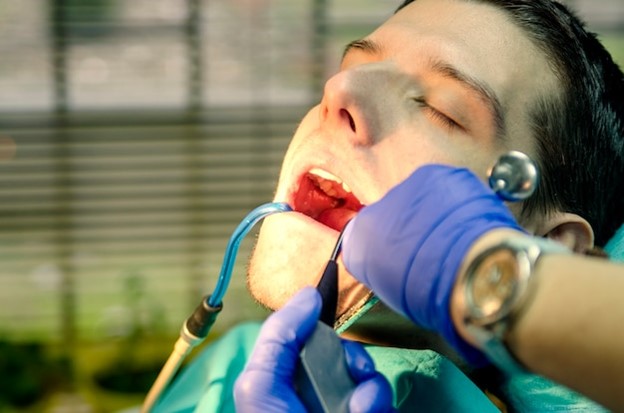
Dental anxiety affects millions worldwide, often causing individuals to avoid essential dental care. This can lead to worsening oral health issues and preventable complications. Fortunately, with proven tips and techniques, overcoming dental anxiety is achievable, helping you achieve stress-free dental care and a healthier smile.
Understanding Dental Anxiety and Its Causes
Dental anxiety refers to the unease or fear many individuals feel when approaching a dental appointment. This anxiety often stems from past negative experiences, fear of pain, embarrassment, or the sensory experience associated with dental offices. Studies from the American Dental Association show that dental anxiety is common, with an estimated 36% of individuals reporting mild to severe anxiety about dental visits.
The Importance of Regular Dental Visits

Neglecting dental appointments due to anxiety can result in significant oral health problems, including gum disease, tooth decay, and even tooth loss. Keeping up with dental checkups is crucial to catch issues early and maintain your overall health. By managing anxiety, you can build a consistent dental care routine and benefit from preventive care.
10 Effective Tips to Overcome Dental Anxiety
If dental visits make you uneasy, these tips can help create a calmer, more manageable experience:
p>1. Choose an Anxiety-Sensitive DentistSeek a practice that understands dental anxiety management and can offer tailored support. At Ballantrae Dental in Whitchurch-Stouffville, our team has experience working with anxious patients, providing compassionate, stress-free dental care.
2. Practice Relaxation Techniques
Relaxation techniques, such as deep breathing and guided imagery, can help reduce anxiety. Focusing on your breath can ease your nerves and calm the mind.
3. Utilize Distraction Techniques
Many dental offices offer amenities like headphones or videos to help distract patients. If these options are available, take advantage of them, or ask if you can listen to your own calming music.
4. Discuss Sedation Dentistry Options

For those with significant anxiety, sedation dentistry options like nitrous oxide (laughing gas), oral sedation, or IV sedation may be effective. Sedation can help you stay relaxed and comfortable throughout the procedure.
5. Start with Small, Non-Invasive Procedures
If you’re returning to the dentist after a long time, consider scheduling a dental hygiene appointment or checkup first. Starting small can help you gradually feel more comfortable in the dental environment.
6. Openly Communicate with Your Dentist
Letting your dentist know about your concerns allows them to tailor their approach and make accommodations. Open communication helps establish trust and understanding, which can make future visits less stressful.
7. ring a Support Person
Having a friend or family member join you can provide a sense of comfort and reassurance. Some clinics allow a companion in the treatment room, making the experience feel less intimidating.
8. Educate Yourself on Procedures
Ask your dentist to explain each step during the visit. By understanding what to expect, you may feel more in control, easing your anxiety.
9. Schedule Appointments During Low-Stress Times
Book appointments during times when you are less likely to feel rushed or stressed. Additionally, avoid consuming caffeine or sugary foods beforehand, as they can amplify anxiety.
10. Reward Yourself After the Appointment
Positive reinforcement can be helpful in reducing dental anxiety over time. Treat yourself after a successful visit to associate the experience with something rewarding.
Additional Techniques for Reducing Dental Fear
For those needing a long-term approach, these additional methods can be beneficial:
- Cognitive Behavioral Therapy (CBT): CBT is an effective method for overcoming dental anxiety by addressing negative thought patterns.
- Mindfulness Practices: Techniques like mindfulness can help focus on the present, reducing anxiety about upcoming dental visits.
- Joining Support Groups: Support groups provide a community of individuals with similar experiences, offering reassurance and shared coping techniques.
Ready to Start Overcoming Dental Anxiety?
If you’re ready to make dental care a stress-free experience, schedule an appointment with Ballantrae Dentaltoday. We offer specialized dental anxiety management to provide gentle, compassionate care tailored to your needs. Let us help you build a healthier smile with confidence and comfort.
Frequently Asked Questions (FAQs) on Dental Anxiety
What are the primary causes of dental anxiety?
Dental anxiety often arises from previous negative experiences, fear of pain, or sensory sensitivities. Understanding the causes is a critical step in finding effective ways to manage it.
How prevalent is dental anxiety?
Studies suggest that nearly 36% of individuals experience some degree of dental anxiety, which can be effectively managed with various strategies.
What should I do if I feel anxious during a procedure?
Let your dentist know if you’re feeling anxious, and they can offer breaks or calming techniques to make the process more comfortable.
Is sedation dentistry safe?
Sedation dentistry, when performed by qualified professionals, is a safe and effective way to ease anxiety. Discuss any concerns with your dentist to find the right sedation option for you.